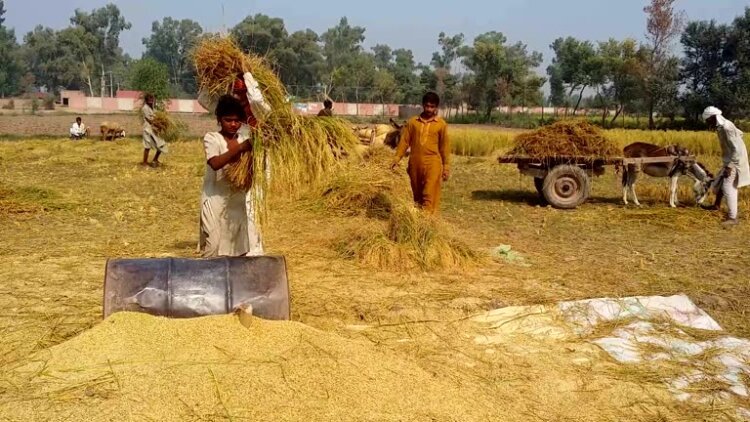Farmers Warn of Food Crisis if 45% Agriculture Tax Not Withdrawn
KARACHI: Farmers in Sindh have raised alarm over the government’s decision to impose a 45% agricultural income tax, calling it a “death sentence” for the country’s most critical sector.
They argued that this move would wipe out small and progressive farmers, worsen rural poverty, and even threaten national food security.
‘We Already Pay Taxes, Unlike What People Think’
Sindh Chamber of Agriculture (SCA) Vice President Nabi Bux Sathio rejected claims that farmers don’t contribute to national revenue.
“Since 1994, we have been paying 5%-15% agriculture income tax and advance tax of Rs. 200 per acre. But we don’t get bank loans, subsidies, or industrial benefits like traders do. Is there any justification for raising it to 45%?”
He added that the IMF had agreed not to tax the agriculture sector, yet the government is pushing a “disastrous” policy.
Profit Margins Already Collapsing
Farmers are facing dual pressure:
-
Low crop prices: Wheat, rice, cotton, and oilseed crops are selling at 20%-50% lower rates since Jan 2024.
-
High input costs: Fertilizers, seeds, and diesel prices have nearly doubled in two years.
For example:
-
DAP fertilizer → Rs. 9,000 → Rs. 13,000 (per 50kg bag)
-
Urea fertilizer → Rs. 2,600 → Rs. 4,400
-
Diesel → Rs. 186 → Rs. 286 per litre
“When costs are rising like this, how can farmers pay 45% income tax?” Sathio questioned.
Farm Leaders See a Bigger Threat
Farmers Organisation Council Sindh Chairman Jawaid Junejo accused the government of deliberately undermining agriculture.
“If this continues, farmers will stop growing wheat and rice. The country will become dependent on food imports, leading to a major crisis,” Junejo warned.
Farmers Plan Court Action
Farmer groups announced plans to file constitutional petitions against the tax, calling it an attack on food security, rural livelihoods, and the national economy.
What’s Next?
-
Farmers demand withdrawal of the tax hike
-
Call for subsidies on fertilizers, seeds, and diesel
-
Legal challenge expected in provincial high courts



